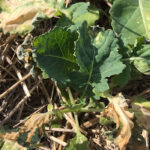
Stories by William DeKay


Event looks for next big ag technology start-up
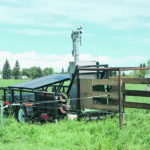
Feed additive may reduce methane emissions
Agriculture Canada and Alberta Cattle Feeders Association participated in a two-year trial that studied the technology
A novel feed ingredient may soon provide a breath of fresh air to livestock producers and the environment. A two-year, large-scale trial in Alberta beef cattle has demonstrated that a feed additive called 3-NOP, added to commercial feedlot diets, can reduce methane emissions by up to 80 percent without negative impacts on animal health, performance […] Read more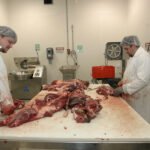
B.C. gov’t expands opportunities for on-farm slaughter
Province proposes strengthening and simplifying the licensing categories and increasing the number of inspections
Years of lost market opportunity has British Columbia’s Small-Scale Meat Producers Association cautiously optimistic about new policies and regulations coming this summer. In a meeting with Ministry of Agriculture, Food and Fisheries staff on March 25, the group was informed of new regulations designed to help producers by opening up more slaughter options and marketing […] Read more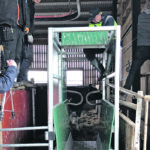
Automatic weigh station open 24-7
Manufacturer says allowing animals to weigh themselves reduces their stress as well as farmers’ workloads and injury risk
Like the milking robot that revolutionized the dairy industry, a Swedish company is betting its new autonomous weigh scale will transform the beef sector. Hencol, based in Grebbestad, Sweden, is targeting the global beef market with its unmanned weigh scale that provides continuous data. “The dairy business is far ahead of the beef business due […] Read more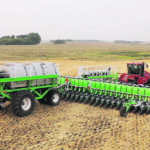
Seeders to be built in Sask.
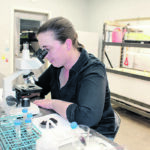
Microscope becomes key tool for farmers
Organic producer uses instrument to assess soil health and identify the good and bad micro-organisms that are present
The microscope is becoming an essential tool to brew up a good batch of compost tea. But composting or not, it should be part of every farmer’s tool kit, said Allison Squires of Upland Organics near Wood Mountain, Sask. “I have found the microscope to be one of my most useful tools that we use […] Read more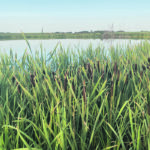
Study looks for marginal cropland solutions
University of Saskatchewan professor hopes farmers will work with her as she researches wetlands and marginal areas
Working with farmers, a University of Saskatchewan study is looking for ways to better manage unproductive land in the province and improve the environment. “We’re looking to recruit 10 more grain producers for the study this year that have marginal cropland or wetlands,” said Christy Morrissey, professor in biology at the University of Saskatchewan who […] Read more
Thoroughbred racing doing well in Alta., Man., despite pandemic
The industry managed to save its season last year in Alberta and Manitoba, but Saskatchewan was not as fortunate
The 2021 Thoroughbred racing season is headed for the starting gate. Last year, the pandemic forced prairie horse racing to change its gait, but most venues stayed on track and some exceeded their financial expectations. “We had our best (betting) handle year in many years and we raced right through until the first week of […] Read more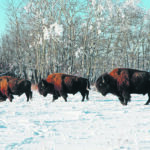
Project aims to boost bison’s genetic diversity
U of S researchers will develop tools so that they can detect bison that have been hybridized between Plains and Wood
The world’s first bison genome biobank is being developed at the University of Saskatchewan’s Livestock and Forage Centre of Excellence. The university was recently awarded $6.76 million from the Canada Foundation for Innovation to help revive the bison population and strengthen the cattle industry. It’s part of a Canada-led effort to conserve bison and other […] Read more



